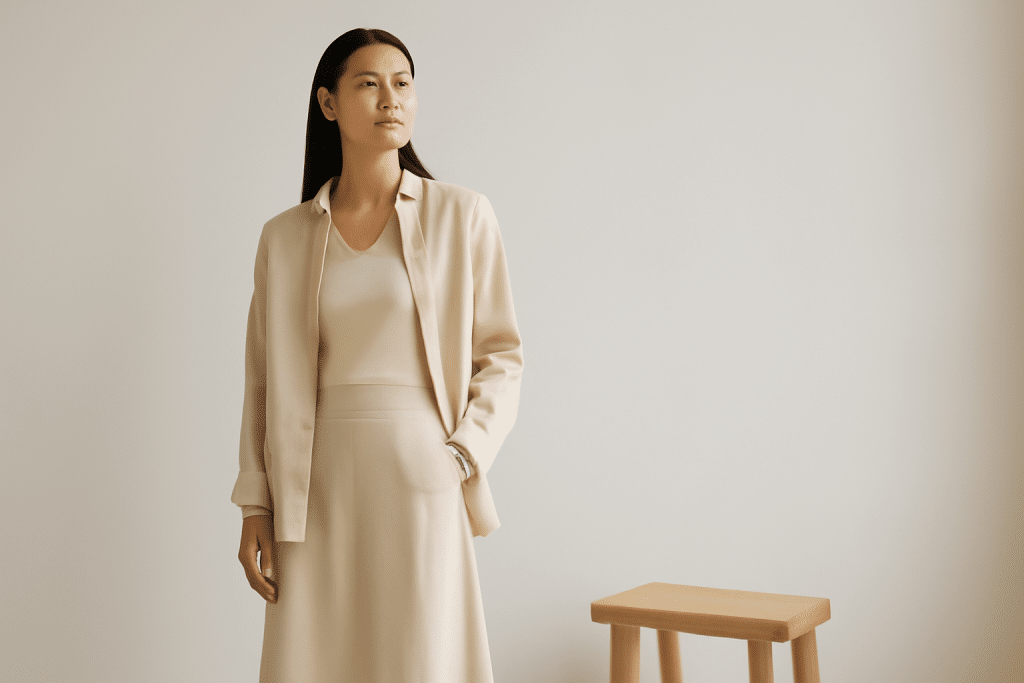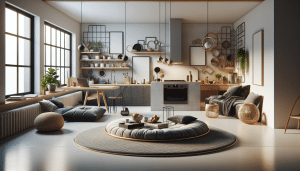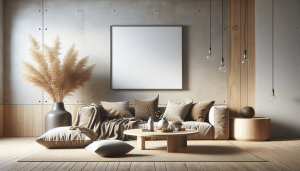Minimalism Reduces Stress by Simplifying Life
Samantha Lee July 31, 2025
In today’s fast-paced world, the constant bombardment of information, clutter, and responsibilities can feel overwhelming. From overflowing email inboxes to an abundance of material possessions, it’s easy to become bogged down by the sheer amount of things vying for our attention. In response to this, many individuals are turning to minimalism—an intentional lifestyle that focuses on reducing physical and mental clutter to make room for what truly matters. By simplifying our surroundings, thoughts, and commitments, minimalism can provide a sense of relief, offering a path to reduced stress and improved overall well-being.
This article will explore how minimalism can significantly reduce stress, why it’s a growing trend in the Lifestyle & Fashion category, and how adopting this approach can lead to greater mental clarity, happiness, and productivity.

The Core of Minimalism: Reducing Clutter to Reduce Stress
At its heart, minimalism is about more than just getting rid of excess belongings. It’s about making intentional decisions that prioritize the things that add value to your life and letting go of what doesn’t. The fundamental principle of minimalism is to declutter, simplify, and live intentionally—whether that involves your physical environment, digital life, or mental state.
1. The Science Behind Clutter and Stress
Research shows that clutter can have a negative impact on both our mental and physical health. According to a study by the Personality and Social Psychology Bulletin, cluttered spaces can trigger feelings of stress and anxiety. The study found that people who lived in cluttered environments had higher cortisol (the stress hormone) levels, leading to increased feelings of stress and difficulty concentrating.
In a similar vein, a study from the UCLA Center on Everyday Lives of Families found that the constant visual reminders of disorganization can actually hinder your ability to relax. With too much stuff surrounding us, our brains become overstimulated, which can impair decision-making, problem-solving, and overall mental well-being.
Adopting a minimalist lifestyle, whether at home or in your workspace, can create a calm and organized environment, which is key to reducing anxiety and fostering a sense of tranquility.
2. Mental Clarity Through Simplification
When we’re surrounded by clutter, both physical and mental, it’s easy to feel overwhelmed. Minimalism’s emphasis on streamlining our possessions and commitments allows us to focus on what’s truly important. By consciously removing distractions and focusing only on the essentials, we free up mental space, enabling us to make clearer, more intentional decisions.
This mental clarity has a direct impact on our ability to manage stress. A 2019 study published in the Journal of Environmental Psychology found that minimalistic environments foster a greater sense of focus and satisfaction. The result? Lower stress levels and greater productivity in both personal and professional settings.
The Rise of Minimalism in Lifestyle & Fashion
Minimalism isn’t just a concept confined to interior design—it’s become a trend in the world of fashion and lifestyle as well. With its emphasis on timeless style over fast fashion, and sustainability over wastefulness, minimalism is increasingly popular among individuals who want to simplify their wardrobes and reduce the clutter in their lives.
1. Sustainable Fashion and Minimalism
Sustainability has become a hot topic in the fashion world, and minimalism plays a pivotal role in this conversation. Rather than constantly purchasing new clothes, minimalism encourages a focus on quality over quantity. By investing in fewer, but higher-quality, pieces, individuals are not only reducing waste but also contributing to a more sustainable fashion industry.
The concept of a “capsule wardrobe,” which promotes the use of a smaller selection of versatile clothing, has gained traction in recent years. A capsule wardrobe allows individuals to mix and match items without the need for excess, thereby reducing decision fatigue and creating a simpler, more intentional approach to dressing.
2. Mindful Consumption
Minimalism also advocates for mindful consumption in all areas of life, not just fashion. It encourages individuals to make intentional decisions about what they purchase, how they spend their time, and how they engage with the world around them. By focusing on what truly brings joy and meaning, minimalism helps reduce feelings of regret, guilt, and stress that come from overconsumption.
For example, many minimalists have embraced “slow living,” a lifestyle that encourages savoring the present moment, focusing on quality experiences over material possessions. Whether it’s dining with loved ones or taking time to appreciate nature, slow living allows individuals to reclaim their time and live more intentionally, rather than rushing through life at a fast pace.
Minimalism in Practice: Simple Steps to Reduce Stress
It’s one thing to understand the benefits of minimalism, but how do you implement it in a way that reduces stress and enhances your life? The following actionable steps can help you embrace minimalism and transform your environment into a space that fosters calmness and productivity.
1. Declutter Your Physical Space
Start by looking around your home or office. Are there items that are no longer useful or bringing you joy? It’s time to remove them. Begin by tackling one area at a time—perhaps your desk, closet, or living room. Don’t be afraid to let go of things that no longer serve a purpose. By reducing physical clutter, you can create a more peaceful, streamlined space that promotes relaxation.
2. Simplify Your Digital Life
In today’s digital age, our devices can often feel just as cluttered as our physical spaces. Emails, notifications, and apps can overwhelm us, leading to stress and distraction. Take time to declutter your digital life by unsubscribing from unnecessary emails, organizing your digital files, and limiting time spent on social media. Using tools like digital calendars and to-do lists can help keep your tasks and commitments organized and manageable.
3. Embrace a Simple Wardrobe
A minimalist wardrobe doesn’t mean you have to give up on fashion. Instead, it’s about focusing on timeless pieces that can be worn in multiple combinations. Opt for versatile items that are both comfortable and stylish, and prioritize quality over quantity. As a result, you’ll reduce the stress of deciding what to wear each day and feel more confident in your clothing choices.
4. Prioritize Your Commitments
Minimalism isn’t just about your physical surroundings—it’s also about your time. Assess your commitments and determine which ones are truly important. Let go of activities that drain your energy or aren’t aligned with your values. By focusing on fewer, more meaningful commitments, you can reduce stress and increase your overall satisfaction with how you spend your time.
5. Practice Mindful Consumption
Take a moment to consider your purchasing habits. Are you buying things out of impulse or because of societal pressure? Practice mindful consumption by asking yourself if an item is truly necessary or if it aligns with your values. By making thoughtful decisions about what you bring into your life, you can avoid the stress of consumerism and focus on things that genuinely add value.
Conclusion
Minimalism is more than just a trend—it’s a lifestyle that offers long-term benefits for mental well-being. By simplifying your physical environment, digital life, wardrobe, and commitments, you can reduce stress, boost productivity, and live with greater intention. In the world of constant distractions, minimalism offers a much-needed respite, allowing you to focus on what truly matters.
If you’re feeling overwhelmed by the clutter in your life, take small steps toward minimalism today. Whether it’s decluttering your desk or simplifying your wardrobe, every intentional action you take will lead to a more peaceful, stress-free life.
Reference
- UCLA CELF study: cluttered homes → higher cortisol, depressed mood- https://www.celf.ucla.edu/
- Journal of Neuroscience: visual clutter overloads attentional capacity- https://www.psychologytoday.com
- Surveys: organized environments → greater calm, efficiency, and control- https://gvma.net/







